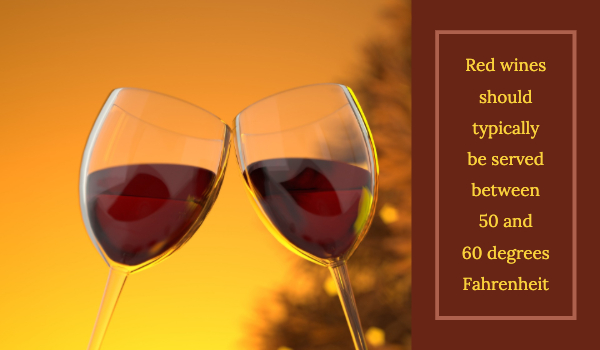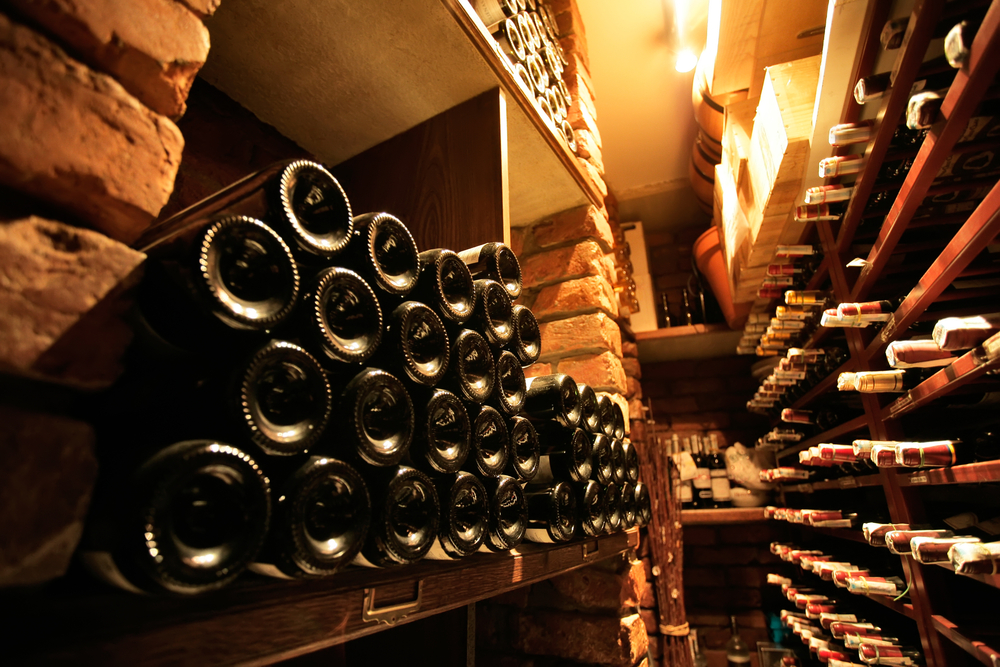
Wine online shopping can be fun. When you find great wine deals online, it can sometimes be too fun. We all stock up when we find a beloved wine on sale at our favorite online wine shop. But what do we do when our online wine shop sends us cases upon cases of wine? You certainly could not, and would not, send it back to the online wine sellers. Instead, you have to find a way to store it. Unless you plan to build a wine cellar, here are five considerations when storing wine:
How long can you store wine?
Wine is fermented and aged. Stored correctly, it can remain drinkable, or even improve in drinkability, for five to ten years. In fact, there is no reason why a wine stored at the ideal temperature and humidity could not last 20 years or more. Given this potential for longevity, nothing is stopping you from going a little crazy at your favorite online wine shop.
At what temperature do you store wine?
Temperature can be a factor in preventing your most recent find at the online wine shop from going bad. The ideal temperature for storage is between 55 degrees Fahrenheit and 60 degrees Fahrenheit.
Wine is made through a complex set of chemical reactions. Some of these chemical reactions are desirable, such as esterification – the production of esters that give the wine its fruity aroma. Other chemical reactions, such as oxidation, are desirable up to a point and then become undesirable. All of these reactions, both the good and bad, are accelerated by elevated temperatures. Thus, wine stored at temperatures above 60 degrees Fahrenheit will age much faster than wine stored at temperatures below 60 degrees.
Temperature consistency is just as important as the temperature. Wine prefers a stable temperature and too much fluctuation can create gaps around the cork or screw top to allow air into the wine bottle. Air means oxygen, and oxygen means oxidation. Oxidation converts ethanol (the alcohol in wine) into acetaldehyde, which is broken down into acetic acid, the primary ingredient of vinegar, by naturally occurring bacteria.
Where should I store wine?
There is a reason wine cellars are dark, humid, and set into the ground. Simply stated, wine hates light, dry or wet air, and vibration.
Light, specifically the ultraviolet (UV) rays accompanying visible light, can cause undesirable chemical reactions in wine. UV rays, which are also responsible for fading curtains and causing skin cancer, strike amino acids in wine and break them down, leaving sulfurous compounds. This leaves your wine smelling and tasting like matches or rotten eggs.
Dry or wet air can have negative effects on wine bottles with natural corks. Synthetic corks or screw tops are less sensitive to dry or wet air. However, natural cork can shrink when the air is dry and rot when the air is wet. Either of these can allow air into the bottle, which initiates oxidation.
Vibrations cause the chemical reactions in wines to accelerate. Think of your favorite chemical reactions from chemistry class in high school. Agitation or stirring almost always speeds up chemical reactions because they promote mixing. Vibrations from fan housings, refrigerator compressors, or other machinery found in many basements can promote those bad chemical reactions that cause wine to age.
Do I need to do anything before serving wine?
Properly stored red wine should be ready to serve directly from storage, as the ideal storage temperature is between 55 and 60 degrees Fahrenheit and the ideal serving temperature is between 50 and 60 degrees Fahrenheit. White wines, on the other hand, might need to be chilled prior to service, since the ideal serving temperature is between 45 and 50 degrees Fahrenheit.
Having stored your red wines to limit the risk of oxidation, it may now be time to, well, oxidize. Decanting or swirling red wines to introduce oxygen into it a few minutes before serving can mellow tannins and bring out secondary flavors.
What if wine goes bad?
If your best efforts to store your haul from the online wine shop go wrong and your wine oxidizes, you can use the oxidized wine to:
- Cook
- Marinate meat
- Make salad dressing
- Create vinegar
- Feed your compost
Wine is relatively easy to store, keeping in mind temperature, humidity, light, and vibration. With these factors in mind, you to enjoy it any time after purchase.



